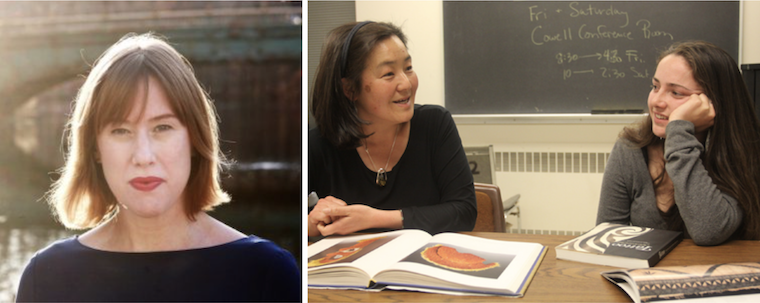Arts & Culture
National Endowment for the Humanities gives $60,000 award to two UCSC faculty members
The National Endowment for the Humanities included two UC Santa Cruz professors in their most recent round of grants and awards. Drs. Jennifer Derr and Stacy Kamehiro are using their newly awarded funding to continue in the projects that focus on diverse groups and global impacts.

The National Endowment for Humanities (NEH) recently announced its $33.8 million in funding going to projects around the country. Of the 260 humanities projects included are two UC Santa Cruz professors: Jennifer Derr, an associate professor of history, and Stacy Kamehiro, an associate professor of history of art and visual culture. Both professors are receiving $60,000 thanks to their individual projects.
These awards come as part of the American Tapestry: Weaving Together Past, Present, and Future initiative. The initiative takes inspiration from the founding legislation of NEH which states it is searching for “a better understanding of the past, a better analysis of the present, and a better view of the future.” American Tapestry focuses on issues of diversity and democracy to advance equity in our country.
It is the hope of NEH Chair Shelly C. Lowe that “This funding will help preserve and expand access to community histories, strengthen the ability of small museums and archives to serve the public, and provide resources and educational opportunities for students to engage with history, literature, languages, and cultures.” Projects receiving awards and funding around the country include but are not limited to: a Kansas initiative to collect oral history of Spanish-speaking and Indigenous communities about the effects of the pandemic; a machine learning project aiming at enhancing access to photography by using resources from the Boston Globe; and a CSU Northridge project to transcribe and archive documented experiences of people of color in the 18th through 20th centuries.
Professor Jennifer Derr’s award comes from one of NEH’s 30 Awards for faculty for her most recent research into liver disease in Egypt. Her project The Organ that Traveled the World: Medicine, Capitalism, and the History of Liver Disease in Egypt looks at the intersection of the histories of science, medicine, environmentalism, and capitalism to understand increased rates of Hepatitis C in Egypt.
“I’m thrilled that Jennifer Derr has been awarded this prestigious NEH Fellowship!” says Jasmine Alinder, the Dean of Humanities. “Her work represents the kind of truly interdisciplinary scholarship that the Humanities Division at UCSC aims to foster.”
Derr recently wrapped up her research and plans on using the award money to help finance her as she spends the next three or four years writing. When finished this will be her second book. Her first, The Lived Nile (2019), investigates the construction of the first dam on the Nile as a “manifestation of colonial economy in Egypt [with an interest] in how patterns of environmental disease shifted as a result of the construction of that dam” she says.
Her new work picks up where the last book left off, especially in terms of her early research on how treatments campaigns by the Egyptian Ministry of Public Health caused Schistosomiasis and Hepatitis C which led to liver disease. Derr uses this to “investigate and think about the relationship between global public health and a broader capitalist world economy, and how medicine was shaped by that relationship,” she says. “I’m very excited about this book, because it gives me a devoted opportunity to think about how medicine within a capitalist world has come to be and what its limitations are, what its strengths have been, and how we should think about that.”
Professor Stacy Kamehiro received part of the $4.7 million in fellowship funding for her work on Objects of the Nation: Hawai’i at the World’s Fairs, 1855–1899. Her research and writing reflect how representation at the world’s fair reflected indigenous sovereignty and Hawiian nationhood.
“This very competitive and prestigious award from the NEH recognizes the outstanding work of Professor Kamehiro regarding indigenous cultures, particularly Hawaiian visual and material culture,” said Celine Parreñas Shimizu, Dean of the Arts Division and Distinguished Professor of Film and Media at UC Santa Cruz. “The entire Arts Division community celebrates this great honor.”
Additional information about the National Endowment for the Humanities and its grant programs is available at neh.gov.